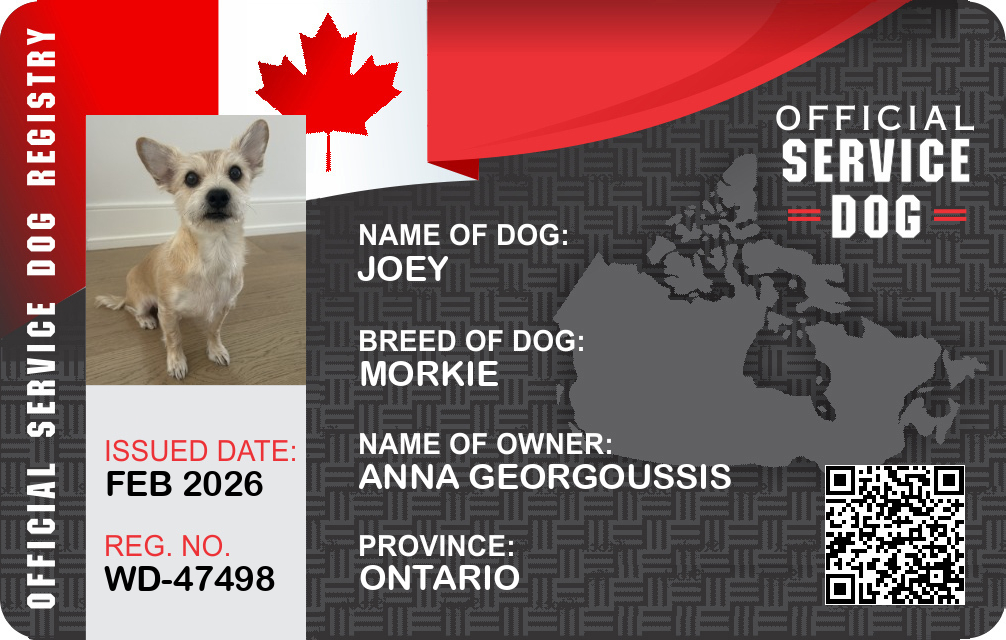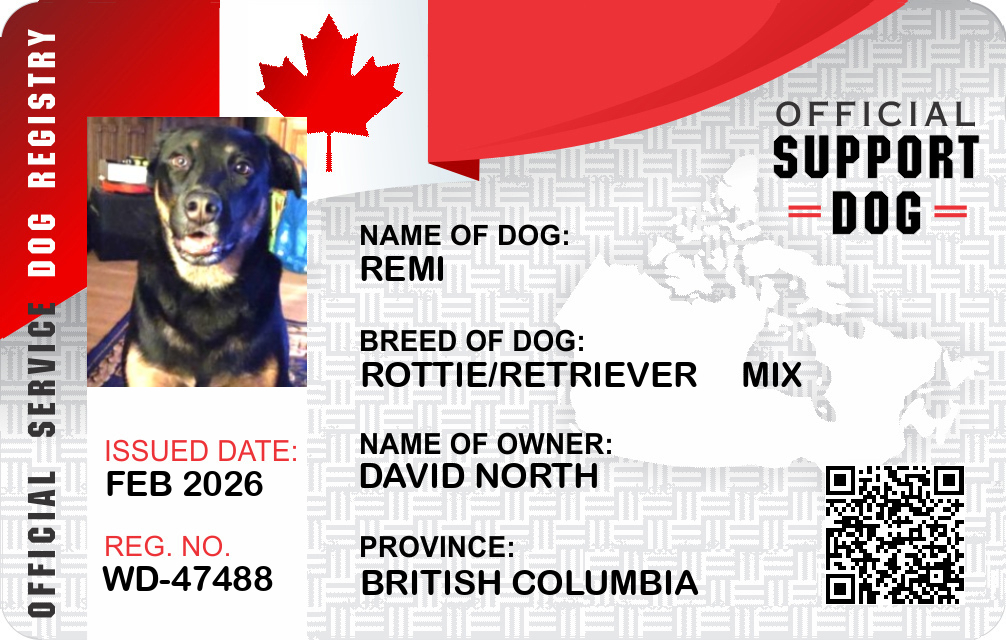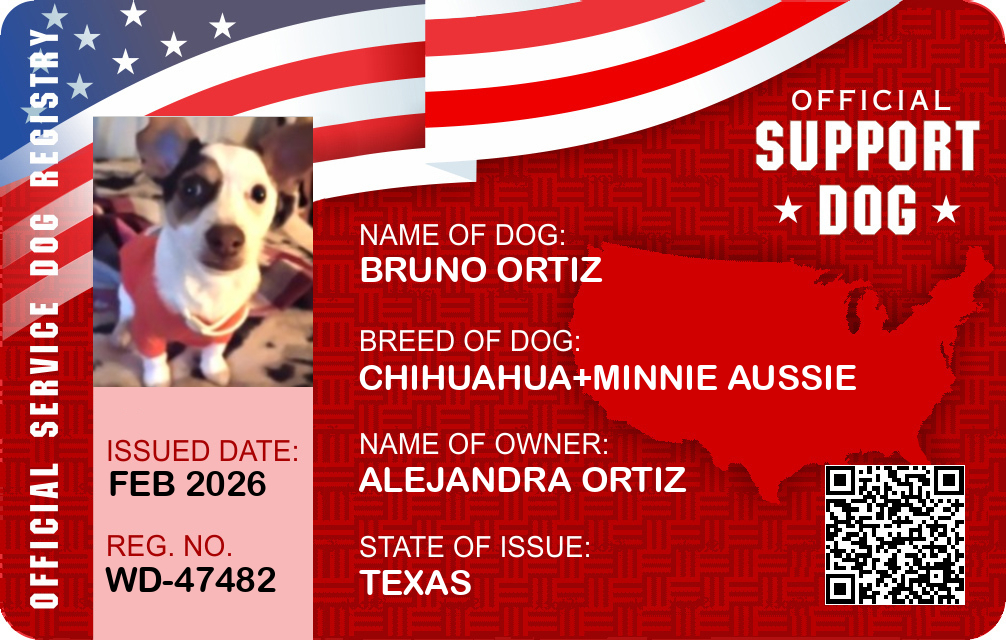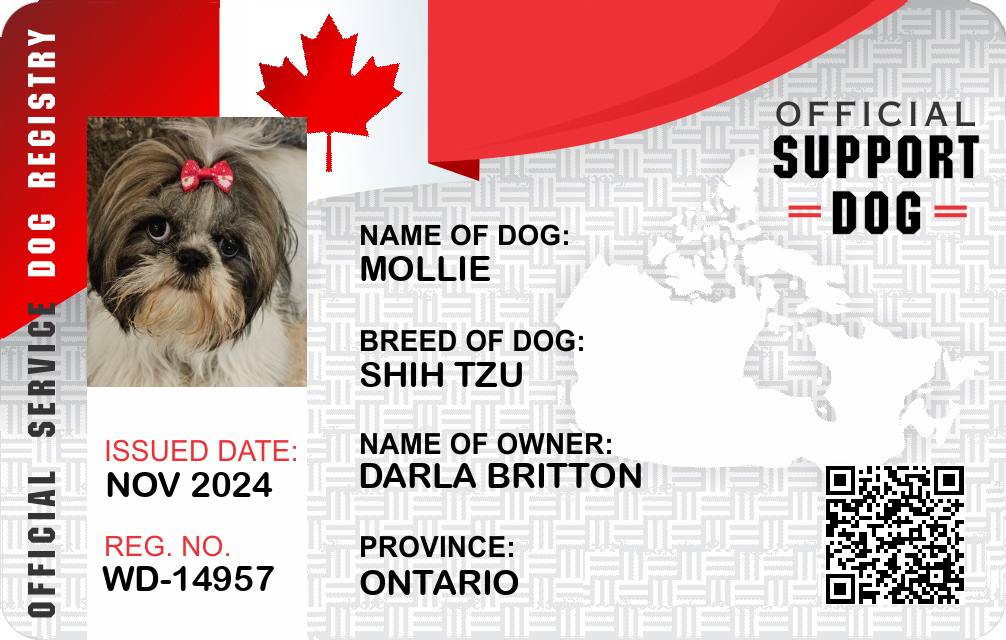Rhode Island Emotional Support Animal Laws
Get Your Documents
Example State Cards

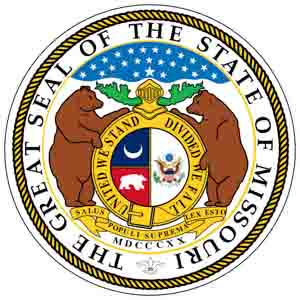
Overview of ESA and Legal Definitions in Rhode Island
What is an Emotional Support Animal?
An Emotional Support Animal (ESA) is a type of animal that provides comfort and companionship to individuals who suffer from various mental or emotional disabilities. Unlike service animals, which are trained to perform specific tasks related to a person’s disability, ESA serve a therapeutic role through their companionship. They can significantly help alleviate symptoms of mental health conditions such as depression, anxiety, and PTSD.
ESA can be any domesticated animal, including dogs, cats, rabbits, or birds, and do not require specialized training. Their primary purpose is to offer emotional relief and improve the overall well-being of their owners. In Rhode Island, as in other states, recognizing the difference between an ESA and a pet is crucial for legal acceptance and accommodation under relevant laws.
How ESA Differ from Service Animals
Service animals, as defined under the Americans with Disabilities Act (ADA), are specifically trained to perform tasks or do work for individuals with physical disabilities. Common examples include guide dogs for the visually impaired or dogs that alert those with epilepsy of an impending seizure. These animals are granted access to public spaces under federal law due to their essential services.
In contrast, ESA provide emotional support through their presence and are not necessarily trained to perform specific tasks. Consequently, ESA do not have the same broad access rights as service animals. It’s essential for Rhode Island residents to understand these differences to ensure compliance with applicable laws and to advocate appropriately for their needs.
Key Federal Laws Affecting ESA (e.g., FHA, ACAA)
The Fair Housing Act (FHA) and the Air Carrier Access Act (ACAA) are two federal statutes primarily affecting ESA. Under the FHA, housing providers must make reasonable accommodations for individuals with ESA, allowing them to live with their ESA, even in housing that otherwise prohibits pets, provided the individual can demonstrate a legitimate need.
On the other hand, the ACAA used to offer similar rights for ESA in air travel; however, recent amendments now allow airlines to classify ESA as pets rather than service animals, restricting their free access in aircraft cabins. Understanding these federal laws helps Rhode Island residents navigate their rights and responsibilities related to ESA in different contexts.
State-Specific ESA Laws in Rhode Island
Housing Rights and Responsibilities
Under the FHA, individuals in Rhode Island with ESA are entitled to reasonable accommodation in housing situations. Landlords are required to allow ESA in no-pet policies, given that the owner provides a valid ESA letter from a qualified mental health professional. This document should explain the necessity of the ESA for the individual’s mental health without disclosing specific diagnoses.
Tenants are responsible for their ESA, ensuring they do not pose a threat or cause significant damage. Landlords cannot charge pet fees for ESA but may hold owners accountable for any damages caused by the animal. Understanding these rights and responsibilities is vital for harmonious landlord-tenant relationships.
Public Access and Accommodation
Rhode Island follows federal guidelines in distinguishing ESA from service animals concerning public access. Therefore, ESA are not entitled to accompany their owners in all public areas where service animals are allowed. While service animals are permitted in areas such as restaurants and shopping centers, ESA do not have this same access unless the specific entity allows pets.
For ESA owners, understanding these limitations is crucial to prevent conflicts and ensure compliance with legal standards. Proactively checking the policies of places they plan to visit with their ESA can help alleviate potential misunderstandings.
Transportation and Travel Rules
With recent changes to the ACAA, ESA are no longer guaranteed preferential treatment on airlines. They are usually treated as pets, subject to individual airline pet policies, which may involve additional fees or restrictions on animal type and size.
In Rhode Island, ESA owners should contact airlines in advance to determine their policies and plan accordingly. This forward planning can help avoid travel disruptions and ensure that both the owner and the ESA are accommodated comfortably and legally.
Employment and Workplace Considerations
The requirement to accommodate ESA in workplaces is not as clear-cut as in housing. Employers in Rhode Island are not legally obliged to allow ESA in the workplace under the ADA, as ESA are not considered service animals. However, some employers may voluntarily permit ESA as a reasonable accommodation under certain conditions.
Employees seeking to bring an ESA into their workplace are advised to engage in an open dialogue with their employer, providing documentation and expressing how the ESA aids their mental health. This mutual understanding can foster a supportive work environment that benefits both parties.
Documentation, Requirements, and Processes in Rhode Island
ESA Letters and Who Can Issue Them
To qualify for legal protections under the FHA, ESA owners in Rhode Island must provide a legitimate ESA letter. This letter should be issued by a licensed mental health professional (LMHP) such as a psychologist, psychiatrist, or clinical social worker. The letter must indicate that the individual has a disability, the ESA aids in this disability, and it should be dated no more than one year ago from the current date.
ESA owners should ensure their documentation is updated annually or as needed when circumstances change, maintaining a clear, open line of communication with their LMHP.
Registration, Certifications, and Common Misconceptions
There is no legal or federal registry or certification process for ESA. Websites offering to “register” or “certify” ESA are often misleading, as they provide no legal standing or additional rights. The critical component of ESA documentation is the ESA letter from an LMHP.
Landlord, Business, and Provider Verification Rules
In Rhode Island, landlords and service providers have the right to request verification of the need for an ESA in the form of an ESA letter. However, they cannot demand access to detailed medical records or specific diagnoses, respecting the individual’s privacy and rights under federal health privacy laws.
Open and willing communication with landlords, employers, and service providers facilitates understanding and compliance concerning ESA.
Rights, Limitations, and Legal Risks
Rights ESA Owners Have in Rhode Island
- ESA can live in no-pet housing with their owner upon presentation of a valid ESA letter.
- Owners are entitled to reasonable housing accommodations without being subjected to pet fees.
- ESA owners are allowed to use their animal as part of their therapeutic process.
Limits on ESA Protections and Common Restrictions
- ESA do not have automatic access to public spaces as service animals do.
- Airlines may require ESA to travel as pets, subjecting them to relevant fees and restrictions.
- Employers are not mandated to allow ESA in the workplace.
Penalties for Fraud or Misrepresentation
Misrepresenting an ESA as a service animal, whether for priority access or other benefits, can lead to legal penalties, including fines. Rhode Island considers intentional misrepresentation a serious offense, as it undermines the integrity of genuine service animal accommodations and protections.
Practical Guidance for ESA Owners in Rhode Island
How to Qualify for an ESA Legitimately
- Consult with a licensed mental health professional to determine if an ESA is appropriate for your needs.
- Obtain an ESA letter from your provider, specifying your need for the animal.
- Ensure your ESA fits your lifestyle and can meet any responsibilities entrusted to it.
How to Talk to Landlords, Airlines, and Employers
- Approach discussions with prepared documentation, clearly explaining how the ESA supports your well-being.
- Be open to negotiation and compromise, especially when addressing airlines or employers who may initially lack an understanding of ESA needs.
- Handle disputes calmly, providing evidence as needed to substantiate your ESA’s role.
Summary of ESA Laws in Rhode Island
- Understand the distinction between ESA and service animals, as this influences where your animal can accompany you.
- The FHA provides housing protections, but ESA do not have guaranteed public access rights.
- Ensure your ESA documentation is legitimate, obtained from a qualifying mental health professional.
- Exercise responsibly by being informed about Rhode Island’s— and federal— specific rules and expectations surrounding your ESA.
- Fraudulent representation of your ESA as a service animal can result in penalties. Approach all interactions with honesty and transparency.
For Rhode Island residents, understanding, and adhering to ESA laws is essential for ensuring their rights are respected and that they can continue to benefit from the therapeutic support their animals provide.
Get Your Documents
Example State Cards





